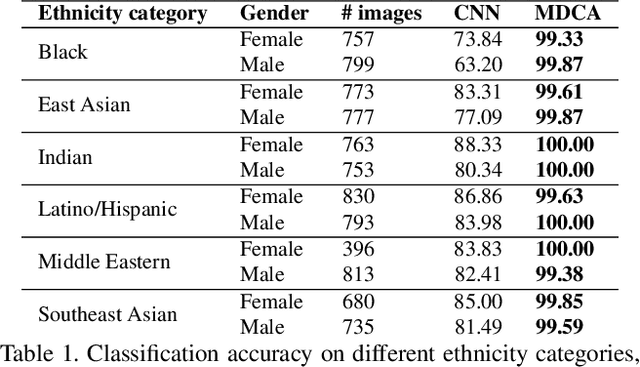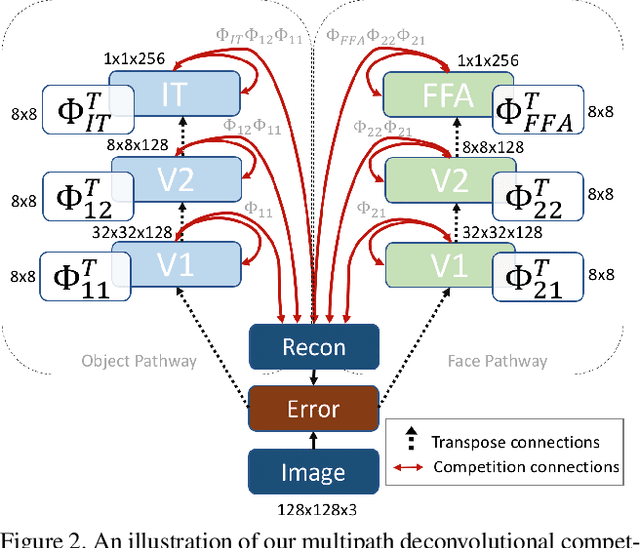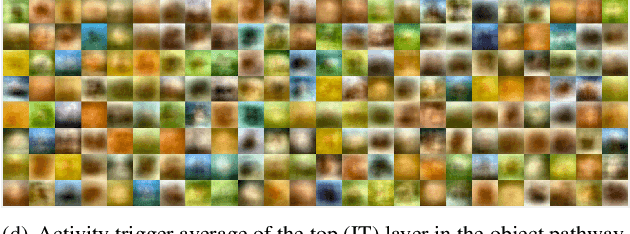The Selectivity and Competition of the Mind's Eye in Visual Perception
Paper and Code
Nov 23, 2020



Research has shown that neurons within the brain are selective to certain stimuli. For example, the fusiform face area (FFA) region is known by neuroscientists to selectively activate when people see faces over non-face objects. However, the mechanisms by which the primary visual system directs information to the correct higher levels of the brain are currently unknown. In our work, we advance the understanding of the neural mechanisms of perception by creating a novel computational model that incorporates lateral and top down feedback in the form of hierarchical competition. We show that these elements can help explain the information flow and selectivity of high level areas within the brain. Additionally, we present both quantitative and qualitative results that demonstrate consistency with general themes and specific responses observed in the visual system. Finally, we show that our generative framework enables a wide range of applications in computer vision, including overcoming issues of bias that have been discovered in standard deep learning models.
 Add to Chrome
Add to Chrome Add to Firefox
Add to Firefox Add to Edge
Add to Edge